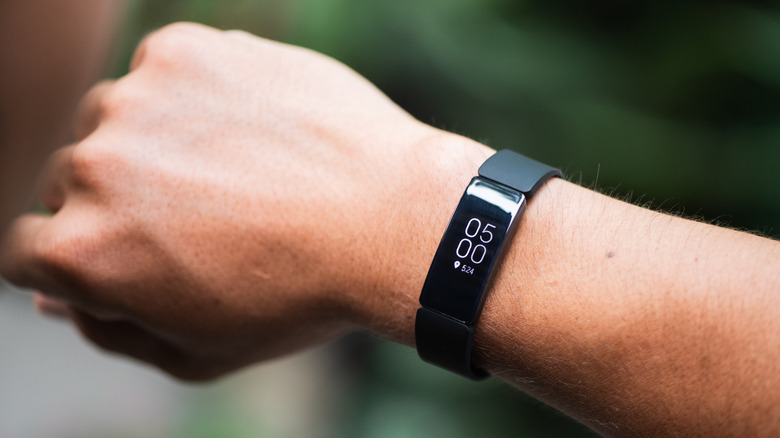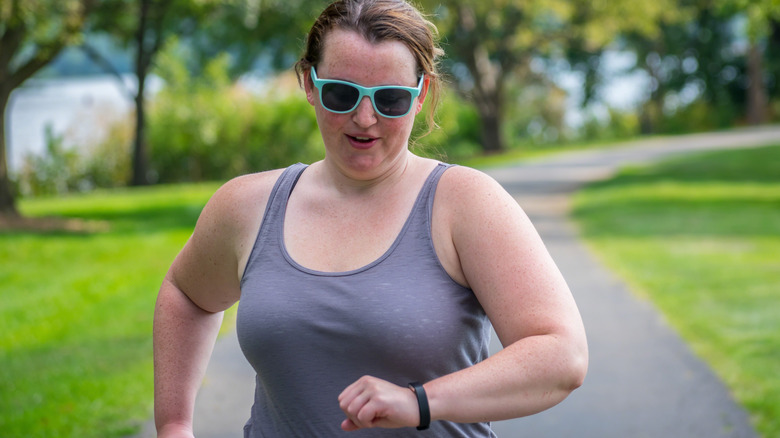How Your Fitbit Could Play A Role In Identifying AFib
Fitbit is a veteran in the world of wearable health devices and was acquired by Google in 2019 (via TIME). Since its launch in 2007, the company has morphed its technology from a simple wearable pedometer into a sophisticated health tracking device. In addition to measuring the distance you've traveled, it can now also inform you about your sleep patterns, calories burned, and heart rate (via warable.com). That's great for those who are trying to meet their daily 10,000-step goal, or curious about how often they're really waking up at night. But new iterations may be able to detect early health complications — namely when it comes to the heart.
A new "PPG AFib algorithm" goes beyond just monitoring heart rate on demand, to actually checking the body for signs of atrial fibrillation (AFib) — a serious medical condition that often leads to potentially life-threatening complications like strokes or blood clots in the heart, according to TechSpot. Fitbits already come with the option of monitoring heart rate, but the current version of the wearable requires the user to initiate a check manually through the app. The new algorithm will work continuously in the background, eliminating this step.
Fitbits will soon be able to alert the wearer to irregular heart rhythms
If Fitbit detects an irregular rhythm, it will notify the wearer through an alert. Dr. Randall K. Wolf, an arrhythmia specialist at the DeBakey Heart and Vascular Center at Houston Methodist Hospital at the Texas Medical Center, told Healthline the devices will help bring awareness and help keep tabs on people's health outside the of the doctor's office. Fitbit can be particularly helpful when it comes to detecting and thus decreasing stroke rate, which can be devastating to a person's health.
Fitbit claims the new algorithm has been shown to be 98% accurate in predicting AFib, and that the company considers the 2% of wearers that receive false positives to be an acceptable price to pay for the overall potential benefit. Dr. Wolf adds that because the technology is not perfect, it's important for users not to panic, but to follow up with their doctor when they see something irregular detected through their device.
There's no firm date yet on when the new feature will be made available, but Google says it will be soon.


